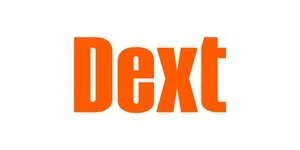Canadian Crypto & NFT Tax Specialists
Precise, CRA-Compliant Accounting for Digital Assets
Cryptocurrency taxation in Canada is complex, highly scrutinized, and often misunderstood. We help investors, founders, and business owners report crypto and NFT activity accurately and defensibly.
At Capex CPA, crypto is not an afterthought or a side service. We specialize in translating wallets, exchanges, DeFi activity, and NFT transactions into clean records, correct tax treatment, and filings that stand up to CRA review. No guesswork. No shortcuts.
Our process combines CPA-level judgment with automated transaction tracking, purpose-built crypto tax software, and secure digital workflows. The result is clarity, compliance, and significantly reduced audit risk.
Whether you are actively trading, mining, staking, minting NFTs, or holding long term, we handle the complexity so you can move forward with confidence.
BOOK A FREE DISCOVERY CALLLet us take crypto tax off your plate.
How We File Your Crypto Taxes
You do four things. We handle the rest.
You
1. Authorize us with CRA
2. Complete our tax checklist
3. Upload your documents to our secure portal
4. Connect your wallets and exchanges
Us
5. Build or carry forward your crypto file
6. Review your transactions in crypto software
7. Apply the correct Canadian tax treatment
8. Prepare your return and send for review
Done
9. You eSign
10. We file with CRA
Clean file. Defensible position. No surprises. Future years get easier.
Ask our jarvis your crypto questions.
FAQs - Crypto & NFT Edition
Expert Guidance for ‘Hodlrs’ and NFT Enthusiasts
-
Yes. In Canada, cryptocurrency is fully taxable, and the CRA has been actively enforcing compliance.
Crypto can be taxed as either capital gains or business income, depending on how you use it. Selling, trading, spending crypto, swapping tokens, or disposing of NFTs can all trigger tax. Income from activities like staking, mining, airdrops, yield farming, or being paid in crypto is also taxable.
The critical point is that not all crypto gains are treated the same, and the CRA looks closely at patterns, frequency, intent, and recordkeeping. Misclassification is one of the most common (and costly) mistakes we see.
Our role is to determine the correct treatment for your specific activity and report it consistently and defensibly.
-
Yes. Most NFT activity in Canada has tax consequences, and the treatment depends on what you are doing with the NFT.
Buying an NFT is not taxable on its own.
Selling, trading, or disposing of an NFT is a taxable event.
Creating and selling NFTs often results in business income, especially if you are minting with the intent to sell.
Trading NFTs may be taxed as either capital gains or business income, depending on frequency, intent, and overall activity.
NFT taxation becomes more complex when intellectual property, royalties, or repeated minting is involved. In those cases, additional rules around intangible assets and income characterization apply.
The CRA looks at behaviour, not labels. We assess your activity, determine the correct tax treatment, and report it consistently to avoid problems later.
-
Canada does not have a separate capital gains tax rate.
Instead, 50 percent of a capital gain is included in taxable income and taxed at your applicable federal and provincial marginal tax rates. The actual tax you pay depends on your total income for the year and your province of residence.
For crypto and NFTs, the challenge is not the math. It is determining whether your activity qualifies as capital gains or business income, as that distinction can dramatically change the tax result.
We review your activity, income level, and overall tax position to determine the correct treatment and estimate the effective tax rate before filing.
-
Yes. Bitcoin and other cryptocurrencies are legal to own, buy, sell, and use in Canada.
That said, crypto operates within a regulated framework. Canadian crypto exchanges must meet registration, compliance, and reporting requirements, and the CRA expects all taxable crypto activity to be reported accurately, regardless of where the exchange is located.
Legal does not mean unregulated, and compliant does not mean simple. Our role is to ensure your activity is reported correctly under Canadian tax law, even when transactions span multiple platforms or jurisdictions.
-
Yes. Bitcoin mining is legal in Canada, but the tax treatment depends on whether the activity is considered a hobby or a business.
Hobby mining is generally not taxed at the time the Bitcoin is received. However, the mined Bitcoin still has a cost base of zero, meaning tax is typically triggered when it is later sold or disposed of.
Business mining is taxable as income at the time the Bitcoin is earned, based on its fair market value. A second tax event can occur when the Bitcoin is later sold, exchanged, or spent.
The distinction between hobby and business is fact-specific and closely scrutinized by the CRA. Factors such as scale, intent, regularity, and profitability all matter.
We review mining activity carefully to determine the correct classification and ensure income, expenses, and future dispositions are reported consistently and defensibly.
-
No. From the CRA’s perspective, Bitcoin, Ethereum, Solana, NFTs, and other digital assets are all treated under the same tax principles.
What matters is how you use the asset, not which token it is. Selling, trading, staking, mining, or using crypto to pay for goods and services can all trigger tax, regardless of the blockchain or token involved.
The real tax risk is not holding the “wrong” coin. It is misreporting the activity, misclassifying income, or failing to maintain proper records. We focus on activity, intent, and consistency to ensure correct reporting across all digital assets.
-
Yes. We work with incorporated NFT artists, content creators, and digital asset businesses across Canada.
When NFT activity is operated through a corporation, the tax issues go well beyond filing deadlines. Revenue classification, expense deductibility, IP treatment, GST/HST exposure, shareholder compensation, and consistency between corporate and personal reporting all matter.
We handle the full picture, including corporate tax filings, financial statements, shareholder reporting, and alignment between your business activity and CRA expectations. Our goal is clean structure, correct reporting, and no surprises.
Corporate crypto and NFT structures require planning, not just filing. That is where we add the most value.
-
Crypto and NFT taxes fail in predictable ways: incomplete records, inconsistent treatment, misunderstood income classifications, and software reports filed without professional review.
A CPA who specializes in digital assets does more than file forms. We reconcile transactions, validate cost base, assess whether activity is capital or business income, and apply Canadian tax rules consistently across years.
At Capex CPA, we combine crypto-specific tooling with CPA judgment to produce filings that are accurate, defensible, and aligned with CRA expectations. That reduces audit risk, avoids costly corrections later, and gives you clarity on what to set aside for tax.
When crypto activity gets reviewed, clean records and consistent reporting matter more than intentions.
-
Crypto tax mistakes are rarely caused by bad intentions. They are caused by weak process.
The right crypto tax accountant should be able to:
Understand how wallets, exchanges, DeFi, and NFTs actually work in practice.
Distinguish between capital gains and business income based on CRA criteria, not guesses.
Reconcile transactions and explain how numbers were derived, not just upload software reports.
Apply Canadian tax rules consistently across years to reduce audit risk.
At Capex CPA, crypto is not a side service. We have structured workflows, purpose-built tools, and CPA oversight designed specifically for digital asset reporting under Canadian tax law.
If you care about clean filings, defensible positions, and fewer surprises later, that is what to look for.
-
Yes. Any profit earned from cryptocurrency activity in Canada is taxable.
How it is taxed depends on the nature of the activity:
Business income is taxed in full at your applicable tax rates.
Capital gains are taxed on 50 percent of the gain, included in taxable income.
The challenge is determining which category applies. The CRA looks at factors such as frequency of transactions, intent, level of organization, and overall behaviour. Many crypto users assume capital gains treatment when their activity actually qualifies as business income.
We review your activity and apply the correct classification so your crypto income is reported accurately and consistently.
-
Failing to report cryptocurrency activity can lead to significant consequences.
The CRA treats unreported or underreported crypto activity the same as any other form of unreported income. This can result in reassessments, penalties, interest, and in serious cases, gross negligence penalties. Where intentional evasion is involved, criminal charges are possible.
The risk is higher today than in the past. The CRA has increased its use of data matching, information sharing, and targeted audits focused specifically on cryptocurrency activity.
If mistakes were made in prior years, addressing them proactively is almost always better than waiting for the CRA to identify the issue. We regularly help clients review past filings and determine the cleanest way forward.
-
Simply holding cryptocurrency is not a taxable event in Canada.
In most cases, if you bought crypto and did not sell, trade, spend, or otherwise dispose of it during the year, there is nothing to report on your tax return related to that holding.
However, reporting may still be required in certain situations, such as:
When crypto is involved in taxable activities like staking, mining, or earning rewards.
When crypto is held through foreign platforms or structures that trigger additional reporting considerations.
When crypto activity forms part of a broader pattern that the CRA may review.
The key distinction is between holding and using crypto. We confirm what needs to be reported based on your actual activity, not assumptions, so nothing is missed and nothing unnecessary is filed.
-
It is more common than most people realize.
Crypto tax mistakes often come from incomplete records, misunderstood rules, or relying solely on software without professional review. The good news is that errors can usually be corrected, especially when addressed proactively.
We review prior filings, identify issues, and determine the cleanest way forward based on your situation. Fixing problems early is almost always better than waiting for the CRA to find them first.
-
Yes. Many of our clients earn, invest, and transact primarily in digital assets.
What matters is not how value is held, but whether activity is tracked, classified correctly, and reported consistently under Canadian tax law. We structure our process to work with modern crypto activity while maintaining the documentation and audit trail the CRA expects.
-
CRA audits are not random in the way most people think.
While some files are selected through automated systems, audits are commonly triggered by inconsistencies, missing information, unusual ratios, prior-year issues, or reporting patterns that do not align with CRA expectations. Cryptocurrency activity is an area of increased focus.
No accountant can promise that you will never be audited, and anyone who does should not be trusted.
What we do focus on is preparing clean, well-documented filings that can withstand review. If the CRA does ask questions, we are experienced in responding, supporting the file, and managing the audit process from start to finish.
-
Yes. You are allowed to file your own crypto taxes.
The risk is not filing, it is filing incorrectly. Crypto tax errors usually come from incomplete transaction histories, misunderstood tax treatment, inconsistent classifications, or relying solely on software outputs without professional review.
Many issues only surface when the CRA asks questions months or years later. At that point, correcting mistakes is more time-consuming and costly than doing it properly from the start.
We work with clients who want confidence that their crypto activity is reported accurately, consistently, and in a way that stands up to CRA review. That is the difference.
If you need support responding to a CRA review or audit, we also handle that process end-to-end:
-
Yes. Cryptocurrency is taxable in Canada, but holding crypto on its own is not a taxable event.
Tax consequences generally arise when you:
Sell cryptocurrency for cash
Trade one cryptocurrency for another
Use cryptocurrency to purchase goods or services
Gift cryptocurrency
Earn crypto through activities such as staking, mining, or rewards
Each of these actions can trigger either capital gains or business income, depending on the nature and frequency of your activity.
The key is not whether crypto is taxable in theory, but when and how it becomes taxable in practice. We assess your actual activity and apply the correct Canadian tax treatment so nothing is missed and nothing is overstated.
-
Cryptocurrency is reported by calculating the gain or income triggered when a taxable event occurs.
In simple terms, this involves determining your adjusted cost base (ACB), identifying the value at disposition, and reporting the difference. Depending on your activity, the result is reported as either capital gains or business income.
Capital gains are taxed on 50 percent of the gain.
Business income is fully taxable.
The critical issue is not the calculation itself, but classification and consistency. Frequent trading, short holding periods, or organized activity can result in business income treatment, even when investors assume capital gains apply.
We reconcile transaction histories, validate cost base, assess your activity, and apply the correct Canadian tax treatment so your crypto reporting is accurate, defensible, and aligned with CRA expectations.
-
Cryptocurrency is reported in different sections of your tax return depending on how the activity is classified.
Crypto dispositions reported as capital gains are included on Schedule 3.
Crypto activity treated as business income is reported on Form T2125.
Trading one cryptocurrency for another is considered a disposition and can trigger tax, even if no cash was received.
Which form applies depends on factors such as transaction frequency, holding period, intent, and overall pattern of activity. This classification is one of the most important decisions in crypto tax reporting.
We review your wallets, exchanges, and transaction history to determine the correct reporting treatment and ensure it is applied consistently.
-
The forms required to report cryptocurrency depend on how your activity is classified.
Crypto reported as capital gains is included on Schedule 3 (Capital Gains and Losses).
Crypto treated as business income is reported on Form T2125 (Statement of Business or Professional Activities).
There is no universal “crypto form.” The key decision is whether your activity is capital or business in nature, which is a factual determination based on CRA criteria such as frequency, intent, organization, and behaviour.
That classification has a significant impact on tax owed and audit risk. We assess your activity and apply the correct reporting treatment so the right forms are used, consistently and defensibly.
-
Crypto currencies crash and if you choose to sell then you are locking in your unrealized losses into capital losses. These losses can be offset against your capital gains. There is a strategy called “Tax loss harvesting” which lets you sell your losing positions to reduce your overall tax position. You can buy these cryptocurrencies in the new year again later to reposition at a lower adjusted cost basis.
-
There is a place for both Fiat currencies and Crypto. Cryptocurrencies will have mass adoption over the long term. There was a big transition gap between humans moving from Bartering goods and services to Gold/Silver. This eventually moved to Fiat currency.
-
You must zoom out. Cryptocurrencies are a roller coaster. If your risk tolerance is very low it is not recommended to invest. Crypto assets should be “Hodl’ed” for a minimum of 5 years to see any capital appreciation.
-
You can do your own crypto taxes if you understand how to do your tax filings. Generally, it’s better to hire a professional to have that peace of mind.
-
Crypto is Tax-free in Canada when you buy the crypto or mint an NFT and it sits in Inventory. The only time taxes come into effect is when you choose to sell or dispose of digital assets.
-
You will have to report your Crypto using your Personal T1 Tax return on Schedule 3 or Schedule T2125 depending on your income categorization.
-
You can’t really put crypto on a tax return. You can report your crypto sales.
-
No. You can’t use Crypto to pay taxes.
-
Yes. Owning cryptocurrencies is legal in Canada.
-
Yes. We work with unincorporated NFT artists, traders, and content creators reporting crypto and NFT income on their personal tax returns.
When NFT activity is earned personally, the key issues are income classification, expense deductibility, recordkeeping, and consistency year over year. Many creators underestimate how quickly hobby activity can cross into business income territory under CRA rules.
We assess your activity, apply the correct tax treatment, and ensure your crypto and NFT income is reported accurately alongside the rest of your personal tax situation. The goal is clean reporting today and fewer problems later.
-
Yes. Cryptocurrency gains are taxable in Canada whether it is Capital Gains tax or a Business income tax. This classification depends on your frequency of trading.
-
Buying and holding Cryptocurrencies are not taxable. The sale of cryptocurrencies and other digital assets like NFTs is taxable. The key is if the asset has been “disposed of”.
-
The price increases from cryptocurrencies do not trigger taxes. The sale of the crypto assets does.
-
Crypto Canada Tax Reddit is a great community and has many brilliant minds in it. However, when seeking Tax advice it’s best to hire professionals. This is because professional CPAs have been trained in taxes for many years. It’s worth the call to understand your tax needs better.
-
You can’t own pure crypto assets like Bitcoin or Ethereum inside your TFSA however you can buy an ETF that follows the price of Bitcoin and Ethereum. You have to do your own research when buying this within your TFSA as the premium management fees for the ETF can be high.
-
The Canada Revenue Agency has provided a guide on how to handle Cryptocurrencies. Here is the link https://www.canada.ca/en/revenue-agency/programs/about-canada-revenue-agency-cra/compliance/digital-currency/cryptocurrency-guide.html
-
You will need Schedule 3 and Schedule T2125.
-
The superficial loss rule can apply to cryptocurrency when a capital loss is realized and then effectively reversed.
In simple terms, a superficial loss occurs when:
You sell a cryptocurrency at a loss, and
You buy the same (or an identical) cryptocurrency within 30 days before or after the sale, and
You, or someone affiliated with you, still owns or has the right to acquire that cryptocurrency after the sale.
When this happens, the capital loss is denied for tax purposes and cannot be claimed at that time. Instead, the denied loss is typically added to the adjusted cost base of the repurchased crypto.
This rule commonly catches active traders who rebuy quickly or use multiple wallets and exchanges. Many people assume crypto losses are always deductible. That is not always the case.
We review transaction timing and trading patterns to ensure losses are reported correctly and denied losses are handled properly under CRA rules.
-
Declaring cryptocurrency involves identifying taxable events, calculating gains or income, and reporting them in the correct section of your tax return.
This requires:
Reconciling all wallets and exchanges
Calculating adjusted cost base (ACB)
Identifying dispositions, income events, and transfers
Classifying activity as capital gains or business income
Reporting the results on the appropriate CRA forms
Crypto tax software can help gather data, but it does not make tax decisions. We use specialized tools as part of a broader workflow that includes professional review, reconciliation, and application of Canadian tax rules.
The goal is not just to file, but to file accurately, consistently, and defensibly.
-
Yes. Cryptocurrency can be taxed in Canada, depending on what you do with it.
Simply holding cryptocurrency, without selling, trading, spending, or earning income from it, is not a taxable event.
Tax is generally triggered when you:
Sell crypto for cash
Trade one crypto for another
Use crypto to purchase goods or services
Earn crypto through staking, mining, rewards, or similar activities
Each of these actions can result in either capital gains or business income, depending on the nature and frequency of your activity.
The distinction between holding and using crypto is critical. We review your activity to determine when tax applies and how it should be reported under Canadian tax law.
-
Yes. We work with Canadian corporations that hold, trade, mine, stake, or earn income from cryptocurrency and NFTs.
Corporate crypto reporting involves more than preparing a T2 return. Revenue classification, balance sheet treatment, GST/HST exposure, shareholder reporting, and consistency between corporate and personal filings all matter. Errors in any one of these areas can create problems later.
We prepare corporate financial statements and tax filings with crypto-specific workflows, professional review, and documentation designed to meet CRA expectations. The focus is clean structure, correct treatment, and defensible reporting.
-
There is no single tax rate for crypto gains in Canada.
The tax you pay depends on how the crypto activity is classified and your overall income level:
Capital gains: 50 percent of the gain is included in taxable income and taxed at your marginal federal and provincial rates.
Business income: 100 percent of the profit is included in taxable income and taxed at your applicable rates.
Because crypto activity can fall into either category, two people with the same dollar gain can owe very different amounts of tax.
We assess your activity, income level, and classification to estimate tax exposure before filing, so there are no surprises after the return is submitted.
-
Cryptocurrency does not have a separate tax deadline.
Crypto activity is reported as part of your regular Canadian tax return, so the due dates follow standard CRA filing rules:
Personal tax returns (T1) are generally due by April 30.
Self-employed individuals have a filing deadline of June 15, but any tax owing is still due by April 30.
Corporations (T2) must file within six months of their fiscal year-end, with tax payments typically due earlier.
Missing payment deadlines can result in interest and penalties, regardless of when the return itself is filed. We confirm deadlines based on your specific situation to ensure nothing is missed.
-
Yes. If your cryptocurrency activity results in taxable income or gains, it must be reported to the CRA.
Failing to report crypto activity can lead to reassessments, penalties, interest, and increased scrutiny. In more serious cases involving deliberate misreporting, the CRA can apply gross negligence penalties or pursue enforcement action.
The risk today is higher than it was in the past. The CRA has expanded its focus on cryptocurrency through audits, data matching, and information sharing.
The safest approach is accurate, complete reporting based on your actual activity. We help ensure your crypto is reported correctly so you can move forward with confidence, not fear.
-
First, take a breath. A CRA audit does not automatically mean wrongdoing.
The CRA can audit any taxpayer, and cryptocurrency activity is an area of increased scrutiny. The strongest defense in any audit is clear, complete, and well-organized records that support how your crypto activity was reported.
We prepare crypto tax filings with the assumption that they may be reviewed. That means reconciled transaction histories, consistent classifications, and documentation that aligns with CRA expectations.
If you are already under review, we can step in to assess the situation, respond to CRA requests, and manage the audit process on your behalf. If audit protection and peace of mind are important to you, this is where professional support matters most.
You can learn more about our CRA audit support here:
https://capexcpa.com/craaudits -
If we are using Koinly as part of your crypto tax workflow, you can grant us access directly through your account.
The process is simple:
Log in to your Koinly account and go to Settings.
Select Team from the menu.
Click Invite, enter our email address, and send the invitation.
Once access is granted, we can review transaction data, reconcile activity, and prepare your reporting efficiently and securely.
If you are unsure whether Koinly is required for your situation, we will confirm the appropriate setup during your consultation.
Still have questions? We'll answer them on the call.













